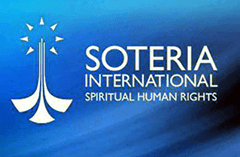
OSCE Office for Democratic Institutions and Human Rights
Human Dimension Implementation Meeting 2017.
Working session 7: Tolerance and non-discrimination, 1
14 September 2017
Freedom of Expression and Religious Rights: rights and obligations
Freedom of Religion and Freedom of Expression are points of concern in all OSCE member states. The complex interaction between these fundamental freedoms has changed in the last decade, through the impact of social media and demographic changes related to immigration. Freedom of expression and Freedom of thought, conscience and belief often seem to clash in the form of blasphemy, discrimination, hate-crimes etc. Still, freedom of expression and freedom of thought, conscience and belief are two sides of the same fundamental inner human need to express and live by ones’ own heart, without denying anyone else the same freedom.
All who engage in social media need to be aware that freedom of expression is not an absolute right in the public sphere.
Freedom of thought, conscience and belief is a central commitment in all OSCE member states, and constitute the basis of tolerance and non-discrimination. Despite many national and international efforts, individuals and religious or belief communities face a range of issues characterized by intolerance, discrimination, and hate speech towards their beliefs. These challenges have profound roots in the lack of education at a social level.
At the core of the human rights dimension lies the commitment to combat all forms of intolerance and discrimination, including hate crime, and to promote mutual respect and understanding.
On the other hand, freedom of expression, in its turn, is a fundamental right protected by Article 10 of the European Convention on Human Rights, and may be exercised while presuming to respect certain conditions. Freedom of expression is seen as a prime necessity in a democratic society. However, together with the rights come a series of obligations that are interdependent with other values, human rights, and freedoms protected by treaties.
Among the obligations related to the right to freedom of expression is the intent to protect human dignity and the respect for the reputation and the rights of others, including freedom of thought, conscience and religion.
Where is the limit to which freedom of expression can be manifested without prejudice to an individual's freedom of freedom of thought, conscience and religion? Freedom of conscience ensures that everyone is free to form their own beliefs about the world in which they live and how social life unfolds. The protection of minority opinions is an essential component of pluralism and tolerance in any democratic society.
What one should understand is that freedom of expression is not an absolute right, but is regulated by law and through responsibility. One may freely express oneself, but in doing so, one should not commit an abuse and damage the rights or reputation of others by making false and misleading statements. Unfortunately, this recommendation is largely ignored, and, thus, often not respected across all levels, whether in governmental institutions, mass media, or on the individual level. The result is that this perceived total freedom of expression, without including the obligation not to harm the dignity of others, does indeed have the capacity to harm.
We feel there is a need to open the dialogue between various members of society on the topic of Freedom of Expression with the hope of increasing our understanding for one another and to find a way to embrace various beliefs in the increasingly globalized European context, while adhering to the shared moral code of conduct and rule of law.
The Fundamental Rights Agency has published a report on discrimination, hatred, or violence against specific groups as seen in the media and political sphere in Denmark, the country in which our organization is based. Their conclusion was that, both, the media and political discourse incite to discrimination, hatred, or violence against specific groups. Especially concerning is the spread of false accusations in our era of social media. For example, in 2015 in Denmark, 60/198 cases of registered hate crime were religiously motivated, the majority of which were aimed at religious minorities.
So we ask you, does the existing legislation, its implementation, educational policies, strategies, and programmes provide sufficient safeguards for the protection of freedom of belief and choice of religious path against abuse and misleading conduct in the name of freedom of expression?
Recommendations:
- Soteria International recommends that the OSCE and all forums of concern create educational programs explaining that the fundamental rights and freedoms we have are composed of both rights and responsibilities which are our obligation to uphold, promote, and encourage at all times. They should also teach that it is the responsibility of individuals, groups, and associations to promote respect for and foster knowledge of human rights and fundamental freedoms at the national and international levels.
- Soteria international recommends that authorities engage to combat hate crimes and other manifestations of intolerance and discrimination by creating educational programs, including raising awareness with regards to the direct correlation between the Freedom of Religion and Belief and the Freedom of Expression. Soteria international considers the role of education in raising awareness on the correlation between freedom of expression and the freedom of conscience, thought, and belief while ensuring the respect of one another’s dignity and beliefs to be very important.





